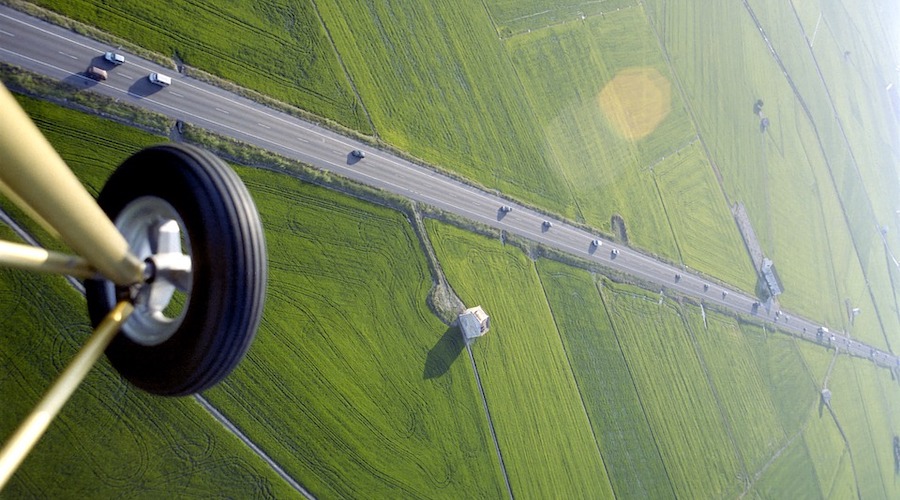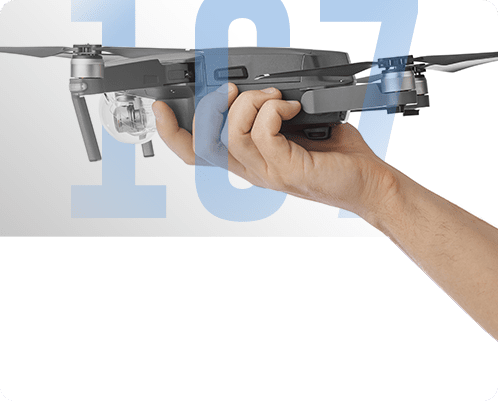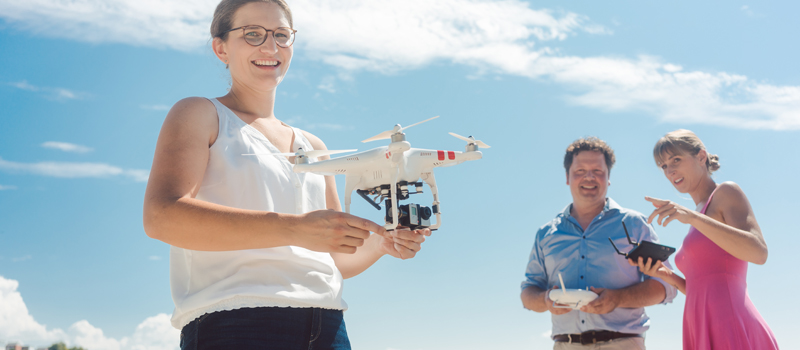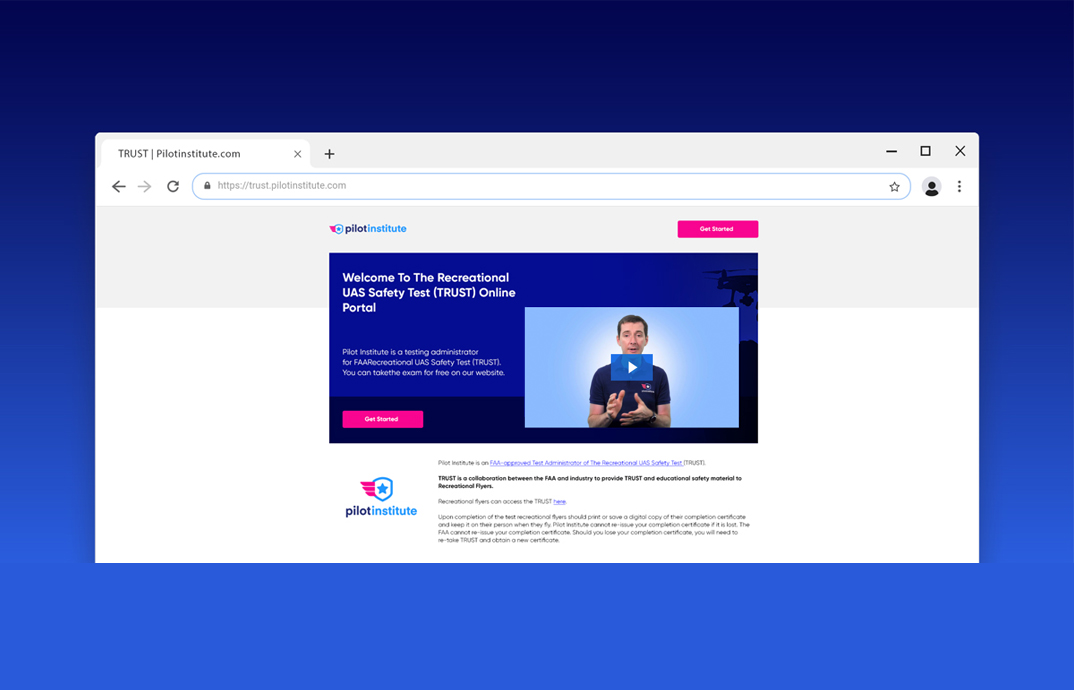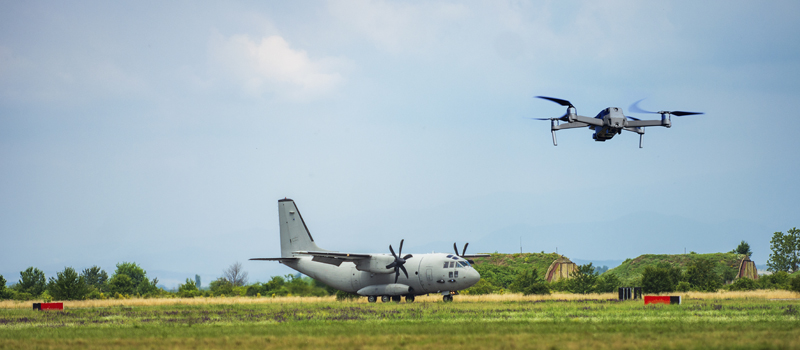If you are a US citizen, then you will only need to secure a pilot’s license from the FAA if you plan to fly your drone to earn money. If you’re just flying for fun, then there’s no need to get any license.
The idea of buying that new drone may have already been lingering in your mind for several weeks. Flying a drone and taking aerial photos has become incredibly trendy in the last couple of years, and there’s no doubt that it can give you hours of entertainment.
However, there may be one question holding you back: are you going to need a pilot’s license to fly a drone? In the current climate of airspace security, what are the federal regulations you need to know about before buying a drone?
Are you flying for fun or for profit?
This is the first question you need to ask yourself before you buy a drone: are you going to fly it purely for fun, or do you want to build a career or business based on drone flight? The answer to this question will not only determine your future legal obligations but also the type of drone you’re going to get.
Are you planning to get into drone photography or sell aerial photos? You might want to consider getting one of the best camera drones available today. Do you envision yourself offering inspection services for utility companies or large-scale industries? You will have to invest in a model that has electromagnetic shielding and a large video transmission range?
If you’re flying just for fun, though, your budget may be the ultimate determining factor. Go for a model that’s easy to learn, fun to fly, and won’t break the bank.
The Part 107 drone license for commercial drone flight
If you’re set on eventually gaining some profit for commercial drone flight, then the FAA requires that you get a Part 107 remote pilot certificate first. More commonly known as a drone license, this requirement was made official back in 2016 upon implementation of the 14 CFR Part 107 rules for commercial drone flight. The same rules also established a number of flight restrictions for licensed drone pilots.
How does one get a Part 107 drone license? Don’t worry, the certification process is much less demanding than what private pilots or commercial pilots of manned aircraft have to go through. You will have to pass a certification or knowledge test, but the FAA does not require a minimum number of flight hours. And although physical and mental fitness is a pre-requisite for being granted a drone license, you are not required to present a medical certificate as proof of such.
Much like any pilot license, the Part 107 drone license grants you the privileges of commercial drone flight as determined by the FAA. Aside from being able to legally fly for profit, you can also request for authority to fly in controlled airspace. Part 107-licensed drone pilots may request to operate in conditions that would otherwise be restricted through a dedicated waiver process.
Also just like any pilot license, being granted the Part 107 drone license places certain responsibilities on your shoulders. You will need to fly under the restrictions as implemented by the FAA and will have to report any drone-related accidents, subject to severity in terms of damages or injury. You may be obliged to present your drone license whenever you fly a drone commercially by the appropriate authority which may include law enforcement and representatives from the FAA and the TSA.
The Part 107 drone license technically doesn’t expire, but the privileges granted to you when you passed the knowledge test are valid only for 24 months. To renew these privileges, you will have to take and pass a recurrent knowledge test. Again, there is no requirement to record a minimum number of flight hours to be able to renew your privileges as a commercial drone pilot.
The FAA will not re-issue a new drone license when you pass the recurrent knowledge test. Instead, you’ll have to keep a copy of the Airman Knowledge Testing Report (AKTR) as proof that your license is current.
What if you’re flying just for fun?
The good news is that the FAA currently has no certification requirements for recreational drone pilots. You may still have to register your drone with the FAA if it weighs greater than 0.55 pounds, but this is a quick and inexpensive process.
Take note that even if you don’t need a pilot’s license to fly a drone for fun, you are still subject to the FAA’s national airspace rules. This includes such guidelines as always giving way to manned aircraft, flying only within a 400-foot altitude, maintaining visual line-of-sight, and not flying a drone over crowds and moving vehicles.
A recent change in the rules for recreational drone pilots requires them to seek authorization for flying in controlled airspace in the same way that Part 107-licensed drone pilots do. In the past, there was no formal procedure for this – drone pilots usually just made a call to the relevant air traffic control (ATC) facility.
Recently, the FAA has announced plans to implement a knowledge test for recreational drone pilots. There is no word yet on the form that this knowledge test will take or when the start of implementation will be. When (or if) this knowledge test comes around, we might see a drone license being required for drone pilots who just want to fly for fun. This is sure to be a controversial matter.
What if I have a pilot’s license under Part 61?
This is a special case for Part 61-licensed pilots who want to fly a drone commercially. Recognizing that these pilots are well-versed in aviation, the FAA has provided a special certification process for Part 61-licensed pilots that is easier and more accessible. However, the holder of a manned pilot certificate must have completed a flight review in the last 24 months for this exception to apply.
To earn a Part 107 drone license, all you have to do is complete a free online training course in the FAASTeam website called “Part 107 small Unmanned Aircraft Systems (sUAS) ALC-451.” Completing the course should take around an hour. You will receive a certificate upon completion of the course.
You will then have to fill up the FAA Form 8710-13, which is the application form for the Part 107 remote pilot certificate. Make an appointment with any of the following to submit your requirements: an FAA-designated pilot examiner (DPE), an FAA-certified flight instructor (CFI), or an airman certification representative (ACR). The representative will then sign and accept your application and grant you a temporary certificate. The permanent certificate will be sent to your billing address by regular mail.
Final thoughts
Federal policy regarding drone flight has gone a long way since the early years when flying a drone for profit legally wasn’t even possible. Now, we have certification standards, flight restrictions, exceptions, and renewal requirements. It may seem complicated, but these are all steps in the right direction.
As both recreational and commercial drone flight become more common, we can expect even more restrictions to be implemented. We’ve seen new proposals and rule changes practically every year. The drone community may not always agree with these new policies, but we must always be ready to either comply or voice out our displeasure.
